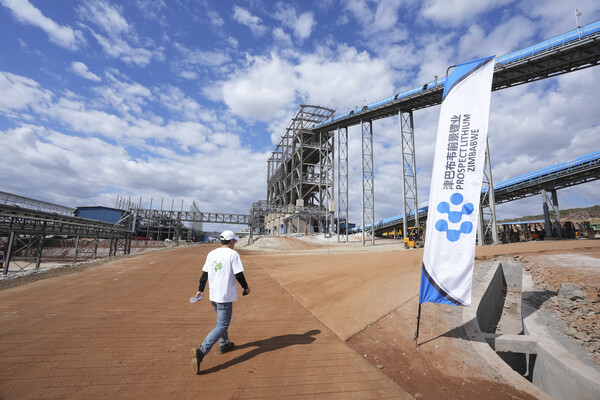
The government of Zimbabwe, through the Ministry of Mines and Mining Development, has extended the submission deadline for beneficiation plans from lithium producers by two months. This decision comes after receiving only four proposals from large-scale lithium miners, according to Deputy Minister of Mines and Mining Development, Engineer Polite Kambamura.
The initial deadline for the submission of beneficiation plans was March 31, but miners requested more time from the Ministry to consult their head offices abroad and to incorporate beneficiation into their annual budgets.
This extension underscores the government’s commitment to transforming the local lithium industry from merely producing lithium concentrate to generating battery-grade lithium, which has a significantly higher value.
Eng Polite Kambamura stated, “There is no going back; the government has said lithium producers should bring their plans for beneficiation. They need to produce lithium salts, such as lithium carbonate and lithium hydroxide, which are better products for battery manufacturing in the country. We need to be prepared. We are not only going to end with concentrated lithium carbonates, but we also want batteries to be manufactured here so that Zimbabwe will be the hub.”
He added, “Yes, they are coming forward with the plans, but these are mostly long-term plans.”
Currently, four large-scale lithium producers have submitted their beneficiation plans.
“We are yet to sit down to consider their proposals. It’s still work in progress. We extended the period by another two months,” Dr. Kambamura noted.
Zimbabwe hosts over ten large-scale lithium mining companies, including the Arcadia Lithium Mine, which is owned by Prospect Lithium Zimbabwe. Arcadia boasts the largest hard rock lithium processing plant in Africa and the second largest globally for lithium concentrates.
Other notable lithium mines include Sabi Star Lithium Mine owned by Max Mind Investments, Bikita Minerals owned by Sinomine, Sandawana Mines owned by Kuvimba Mining House (KMH), Gwanda Lithium Company, Mutoko Lithium Mine, and Kamativi Lithium Mine owned by Kamativi Mining Company (KMC).
The directive for lithium beneficiation is part of a broader strategy to boost government revenue and ensure that the country benefits more significantly from its vast mineral resources. Finance Minister Professor Mthuli Ncube has mandated that lithium companies submit beneficiation plans before receiving operating licenses. With numerous lithium mining projects underway, Zimbabwe, which holds the largest lithium reserves in Africa, is poised to become a key player in the global lithium market.
However, there are challenges. One significant impediment to the establishment of battery-grade lithium processing plants is the fluctuating price of lithium. Moreover, companies like Zhejiang Huayou Cobalt have expressed concerns about the local conditions for producing battery-grade lithium. Huayou pointed out that Zimbabwe lacks the necessary resources such as reliable renewable energy, natural gas, and sulphuric acid, which are critical for the production process.
Zimbabwe’s substantial hard-rock lithium reserves have attracted over $1 billion in investments from Chinese companies, including Zhejiang Huayou Cobalt, Sinomine Resource Group, Chengxin Lithium Group, Yahua Group, and Canmax Technologies. Despite this influx of investment, the establishment of local beneficiation plants remains a complex issue.
Last year, the value of lithium exports reached US$878.44 million, a figure that helped offset the decline in gold and PGM (platinum group metals) revenue, according to Zimstat data. In the first quarter of this year, lithium exports were valued at US$76.3 million. These figures highlight the potential economic benefits of developing a robust lithium beneficiation industry in Zimbabwe.
The government has long struggled to persuade PGM miners to refine their metals locally. These miners typically ship concentrates to South African refineries, citing insufficient local electricity and mineral supplies to support the significant capital investment required for building refineries. This situation has prompted a renewed focus on ensuring that the lithium sector does not follow a similar path.
As the government pushes for the beneficiation of lithium, the success of this initiative will depend on addressing the infrastructural and economic challenges that currently hinder the production of battery-grade lithium. The ongoing engagement with mining companies and the extension of the submission deadline are steps towards achieving this goal and positioning Zimbabwe as a central hub in the global lithium market.
